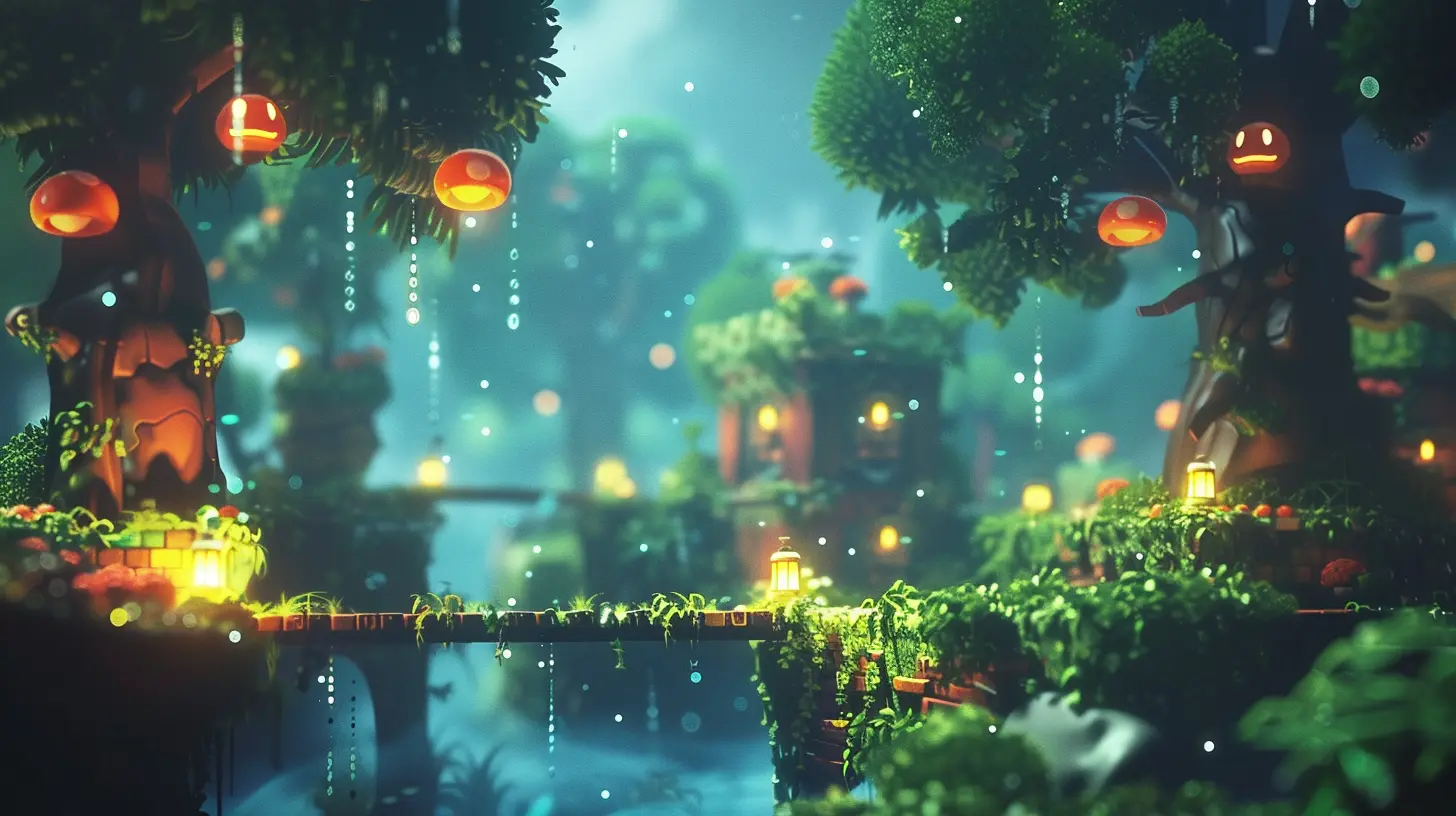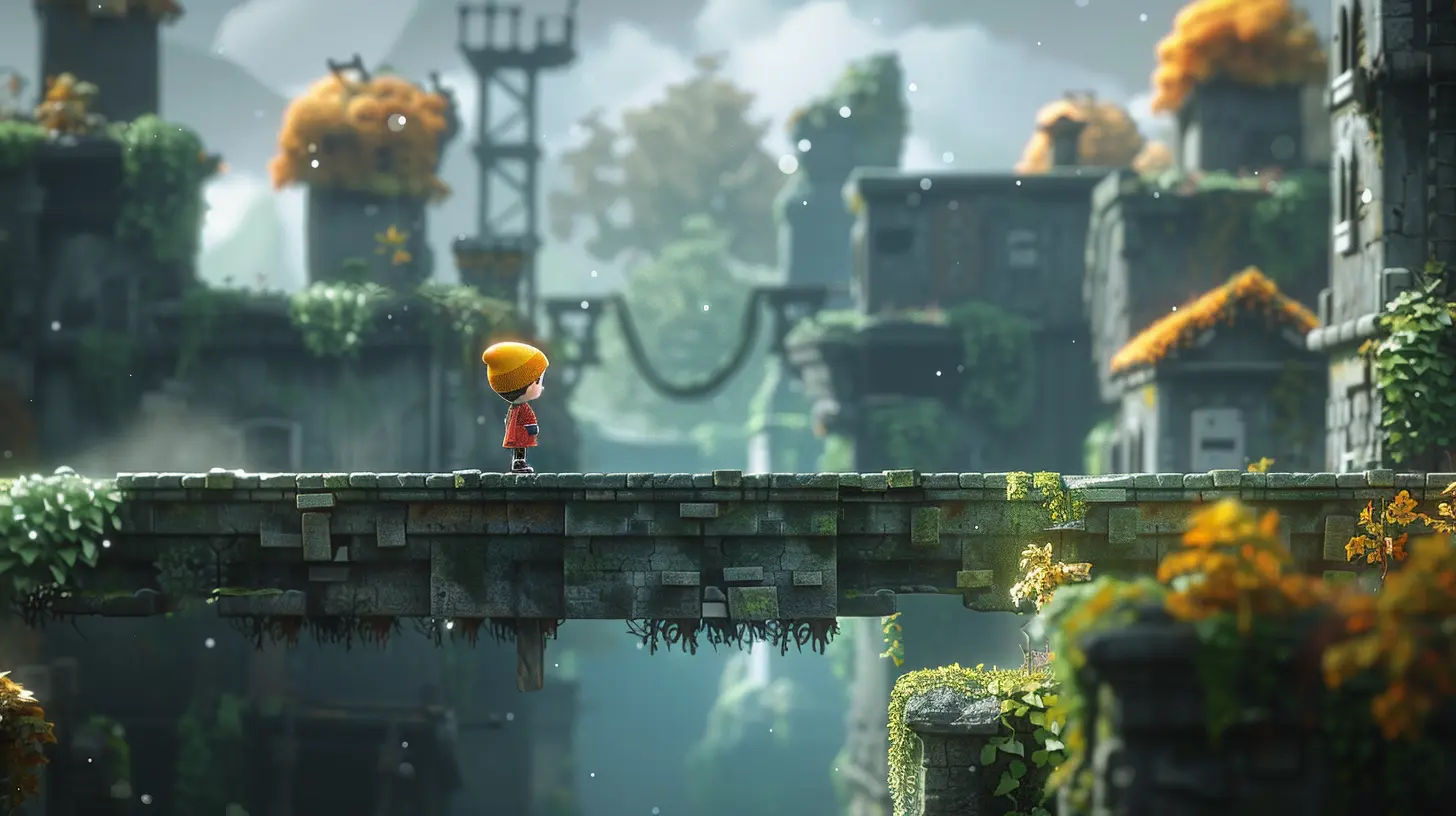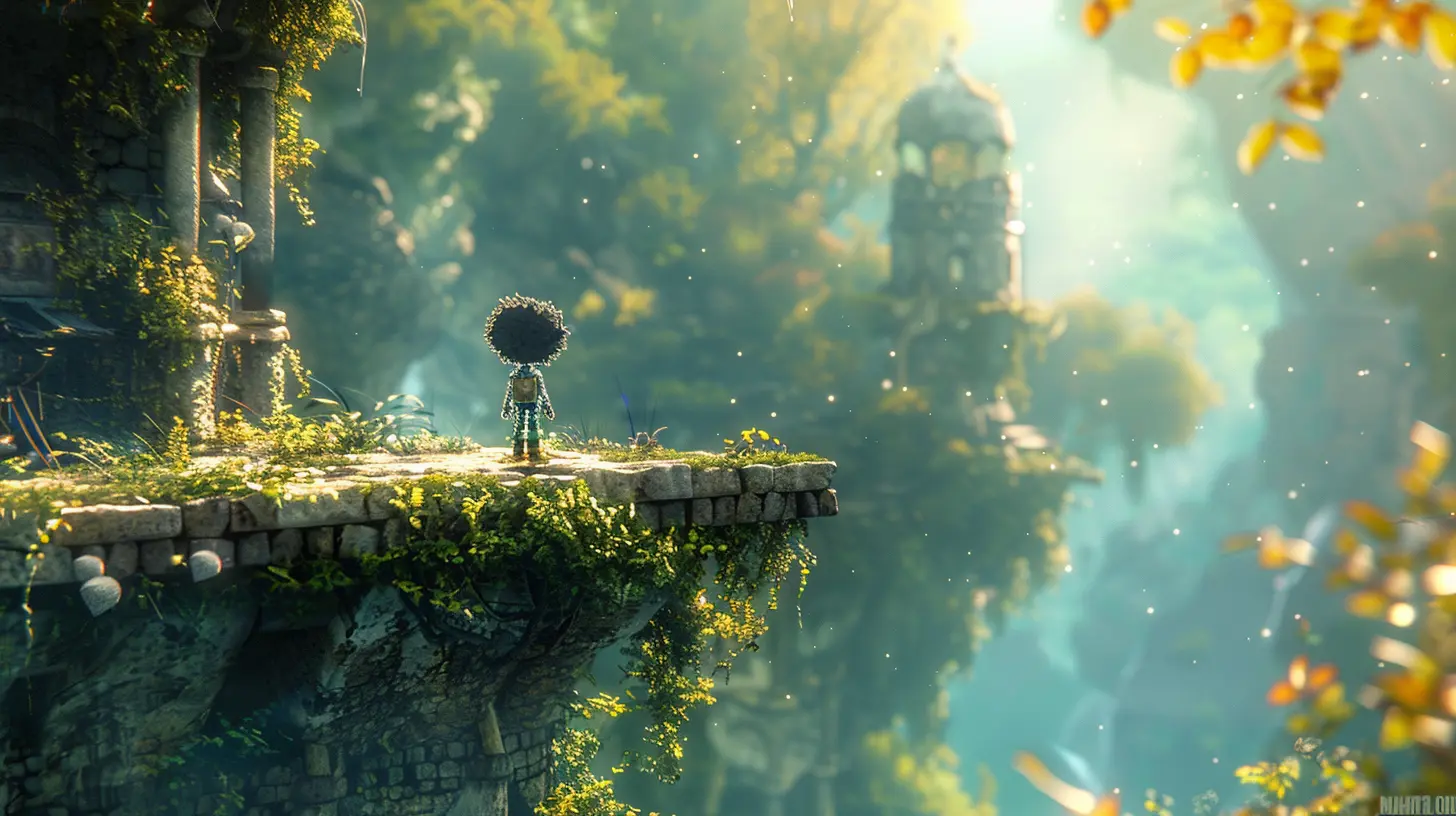How Elements of Randomness Add Spice to Platformer Games
27 August 2025
Platformer games have been a fan favorite ever since a certain Italian plumber started jumping over barrels and stomping on enemies. They're fast-paced, full of challenges, and pack a serious nostalgia punch. But one thing that keeps players coming back long after the levels are memorized? Randomness.
Yep, the unexpected. Random events, enemy spawns, level shifts, and item drops—those curveballs thrown at just the right moment to make you yell at your screen... and then hit "restart" to try again. It’s this unpredictability that keeps the genre alive and fresh.
In this article, we’re diving into how elements of randomness add that flavorful chaos to platformer games. It's like putting hot sauce on your favorite burger. You love the burger already—but that kick? That’s what makes it unforgettable.
Let’s dig in.
What Counts as “Randomness” in Platformer Games?
First off, let’s clear the air around what randomness actually is in games. We're not talking about games breaking or levels glitching out. We're talking about deliberate, controlled randomness designed to enhance the gameplay experience.In platformer games, randomness can show up in a bunch of different ways:
- Random enemy placements or movements
- Random level layouts (especially in procedurally generated games)
- Random power-up or item drops
- Changing environmental hazards
- Dynamic weather or lighting effects
- Unexpected events triggered mid-level
Any of these can take a level you've played 50 times and make it feel brand-new.
Why Randomness Works So Well in Platformers
Platformers are all about timing, precision, and pattern recognition. You jump from platform to platform, avoiding enemies and collecting goodies in a rhythm that just feels... right. After a while, though, that rhythm becomes predictable—maybe even boring.That’s where randomness swoops in like a wildcard. It forces you to adapt. To stay on your toes. To not rely on muscle memory alone. It's like dancing with a partner who can change the song at any minute—you get better, faster, and more reactive.
Here's how that randomness makes platformer games more engaging:
1. Keeps the Gameplay Fresh
Imagine running through the same level over and over again. Same enemies, same jumps, same obstacles. Not exactly thrilling, right? But inject a little randomness into the mix—enemies move differently, some platforms vanish, or power-ups drop in new places—and suddenly, it’s a whole new challenge.This freshness is especially crucial in roguelike or endless platformers like Spelunky or Dead Cells, where no two runs are ever alike. Replayability becomes limitless.
2. Adds Genuine Challenge
When you don’t know what to expect, you're forced to think on your feet. This unpredictability ramps up the difficulty in a fun way. You're not just memorizing patterns—you’re reacting, analyzing, and adapting on the fly.This reactive style of gameplay often feels more rewarding. You didn’t just beat the level—you outsmarted it.
3. Makes Every Player’s Experience Unique
You’ll often hear gamers tell stories like, “I was down to one heart, and out of nowhere, a health power-up dropped right in front of me.” That kind of randomness creates memorable, personal anecdotes. It makes the experience uniquely yours.When randomness is implemented well, it lets every player craft their own story, even from the same game.
Controlled Randomness vs. Pure Chaos
Let’s be real—too much randomness can ruin a good thing.There’s a fine line between “chaotic fun” and “unfair mess." If a game feels like a total lottery where skill doesn’t matter, players are going to bounce fast. That’s why most randomness in platformers is actually “controlled randomness.”
Think of it like jazz music—it might sound totally spontaneous, but there's structure behind it.
Controlled Randomness Examples
- Enemy spawn zones: Enemies spawn randomly, but only within certain areas.- Procedural level generation with set rules: Levels are randomized but follow a logic that ensures they're always winnable.
- Smart item drops: Health items drop more frequently when you're low on health.
Good game design uses randomness to amplify fun, not frustrate the player.
Games That Nail Random Elements
Let’s give props to a few platformers that have absolutely crushed the randomness game:🎮 Spelunky
If you talk about randomness in platformers, Spelunky has to be on your list. Every level is procedurally generated, meaning you never play the same level twice. Traps, enemies, treasures—it’s all shuffled. But the genius is in the balance. Even with all that randomness, the game feels fair (if punishing).You mess up? That’s on you. Not the RNG.
🎮 Celeste
Now, Celeste isn’t known for randomness in its core levels, but the Assist Mode and custom mods allow for randomized challenges. Plus, the optional strawberries and varying difficulty routes introduce surprise elements that change how each player experiences the game.It’s a masterclass in threading controlled variety into a precision platformer.
🎮 Dead Cells
This action-platformer mixes roguelike randomness with metroidvania structure. You’ve got procedurally generated zones, random weapon drops, and enemies with different behavior patterns. It keeps you alert and constantly adjusting your strategy.You never know if this run’s gonna be a cakewalk or a gauntlet—and that’s the thrill.
The Psychology Behind Randomness
So, why do we actually enjoy randomness in games? Psychologists would chalk it up to a few key reasons:Variable Reward Systems
This is the same concept behind slot machines. You never know what you’re gonna get, but the possibility of hitting the jackpot keeps you coming back. Random item drops and mystery boxes tap into this very human desire for surprise and reward.Spike in Dopamine
Our brains love surprises—especially when they’re positive. Getting a sudden boost, like a rare power-up when you’re on the brink of failure, gives you a dopamine hit. It feels good, simple as that.Increased Engagement
When a game keeps changing its playbook, players naturally pay more attention. You can’t zone out or go into autopilot. You’re always engaged, always evaluating. This keeps gameplay from feeling repetitive, even after hours of play.How Developers Balance Randomness & Structure
Balancing randomness without making a game feel unfair is an art—and developers have a few tricks up their sleeve.Level Seeds and Logic Systems
Procedural generation isn't just random chaos. Developers set up level “seeds” with algorithms that follow certain rules. That way, even the most shuffled layouts still follow logical progression and difficulty curves.AI Pathing with Controlled Variables
Enemy AI often uses a mix of scripted behavior and random elements. Maybe an enemy has a pattern, but occasionally jumps at unexpected intervals or moves slightly faster/slower. This keeps things interesting without being absurdly difficult.Fail-Safe Mechanics
Ever notice how you tend to find a helpful item right after a particularly tough section? That’s not luck—it’s smart fail-safe coding. Games can track your health, number of deaths, or time spent, and reward you accordingly with better drops or easier paths.It’s like the game whispering, “I got you, bud. Keep going.”
Randomness: A Tool, Not a Crutch
Let’s be clear: randomness should never replace solid game design. It’s there to enhance, not carry the experience. A poorly designed game won’t be “saved” by random enemy spawns or loot chests.But when used right? It can turn an ordinary platformer into an addictive, endlessly replayable masterpiece.
Tips for Players: Embrace the Chaos
If you’re a player looking to get better at handling randomness in platformers, here are a few words of advice:- Stay flexible: Don't get locked into one strategy. Adapt on the fly.
- Focus on fundamentals: Great reflexes and timing will carry you no matter how chaotic things get.
- Don't chase perfection: Randomness means no run will ever be perfect. Roll with the punches and enjoy the unpredictability.
- Take breaks: Sometimes it’s not the game—it’s your brain that needs a reset. Getting frustrated? Step back and breathe.
Future of Randomness in Platformers
With advances in AI and machine learning, future platformers could feature even more sophisticated randomness. Imagine levels that adapt dynamically to how you play. Or enemies that learn your patterns and evolve on the fly.We’re talking about games that feel completely alive—reacting to you, challenging you, and cheering you on in their own weird, pixelated way.
Randomness isn’t going anywhere. In fact, we’re just scratching the surface of its potential.
Final Thoughts
So, the next time you find yourself dodging a surprise enemy or slipping on a vanishing platform you swear wasn’t there last time—don’t get mad. That’s the spice of randomness doing its thing.It keeps you coming back. It keeps you guessing. And most importantly, it turns a good platformer into a game you’ll be talking about for years.
Whether you're speedrunning through a roguelike or tackling a puzzle platformer, a little randomness keeps the journey wild and fun. Because let’s face it—who wants to jump through the same hoops over and over when you can leap into chaos instead?
all images in this post were generated using AI tools
Category:
Platformer GamesAuthor:

Tayla Warner
Discussion
rate this article
1 comments
Cynthia McLoughlin
Incorporating randomness into platformers not only enhances replayability but also mirrors the unpredictability of life. Each unexpected twist challenges players to adapt and innovate, forging deeper connections to the game world, while showcasing resilience in the face of uncertainty.
August 29, 2025 at 4:42 AM

Tayla Warner
Absolutely! Randomness enriches gameplay by adding unpredictability and encouraging adaptability, making each playthrough a unique journey that resonates with real-life challenges.


